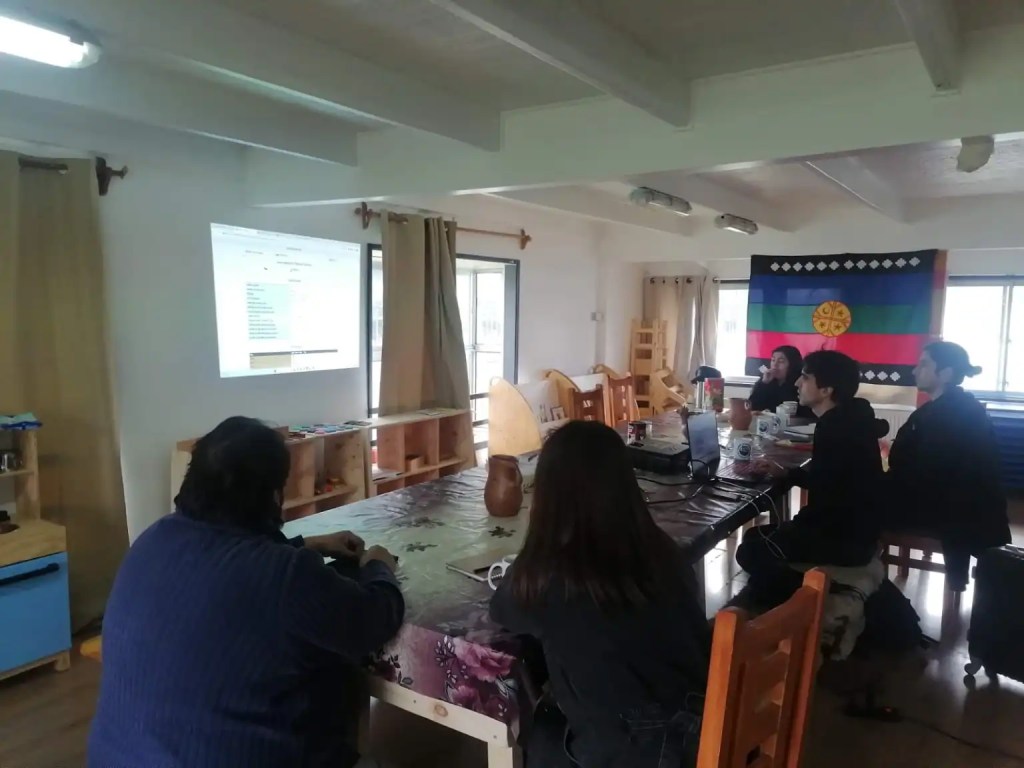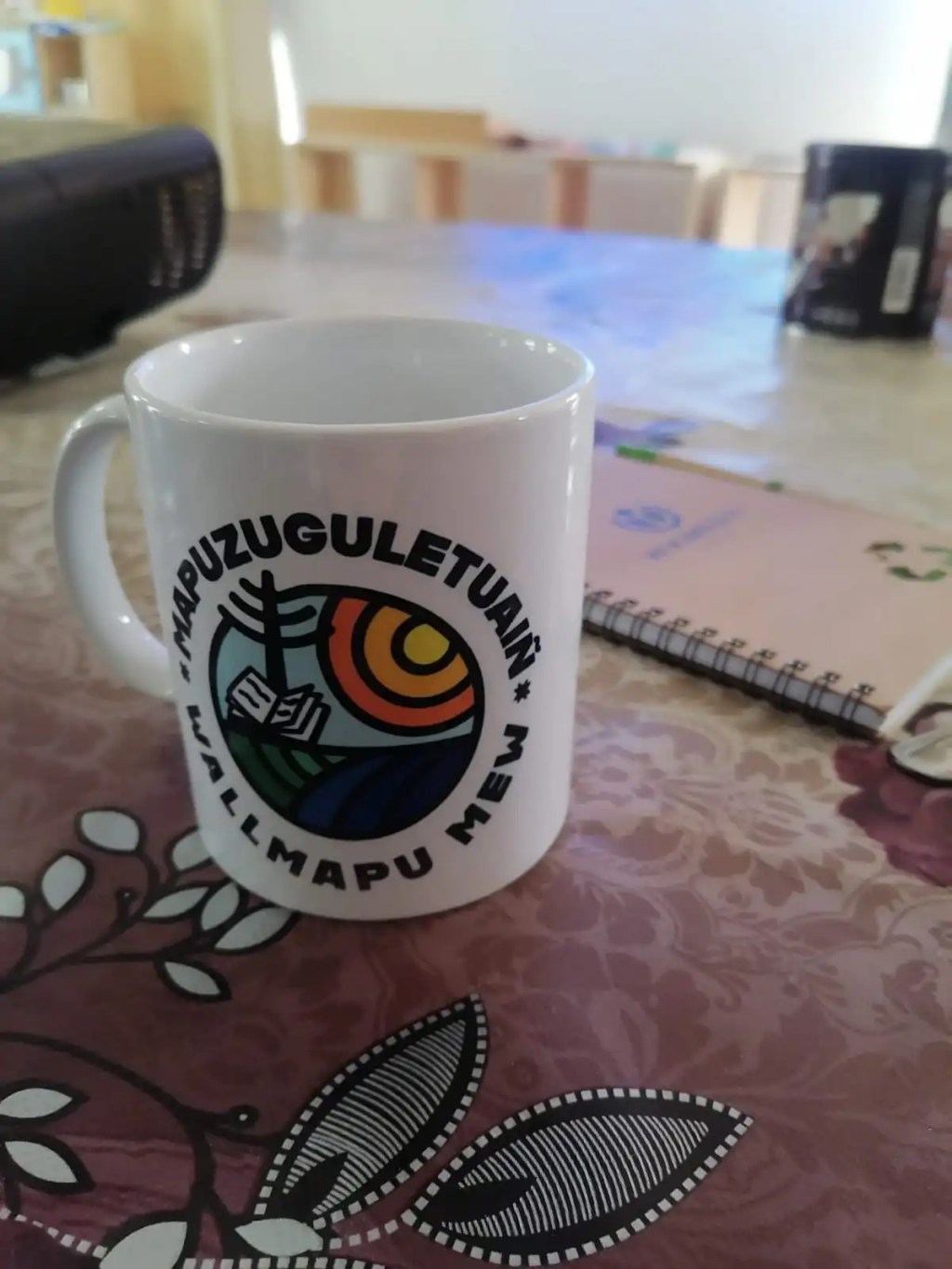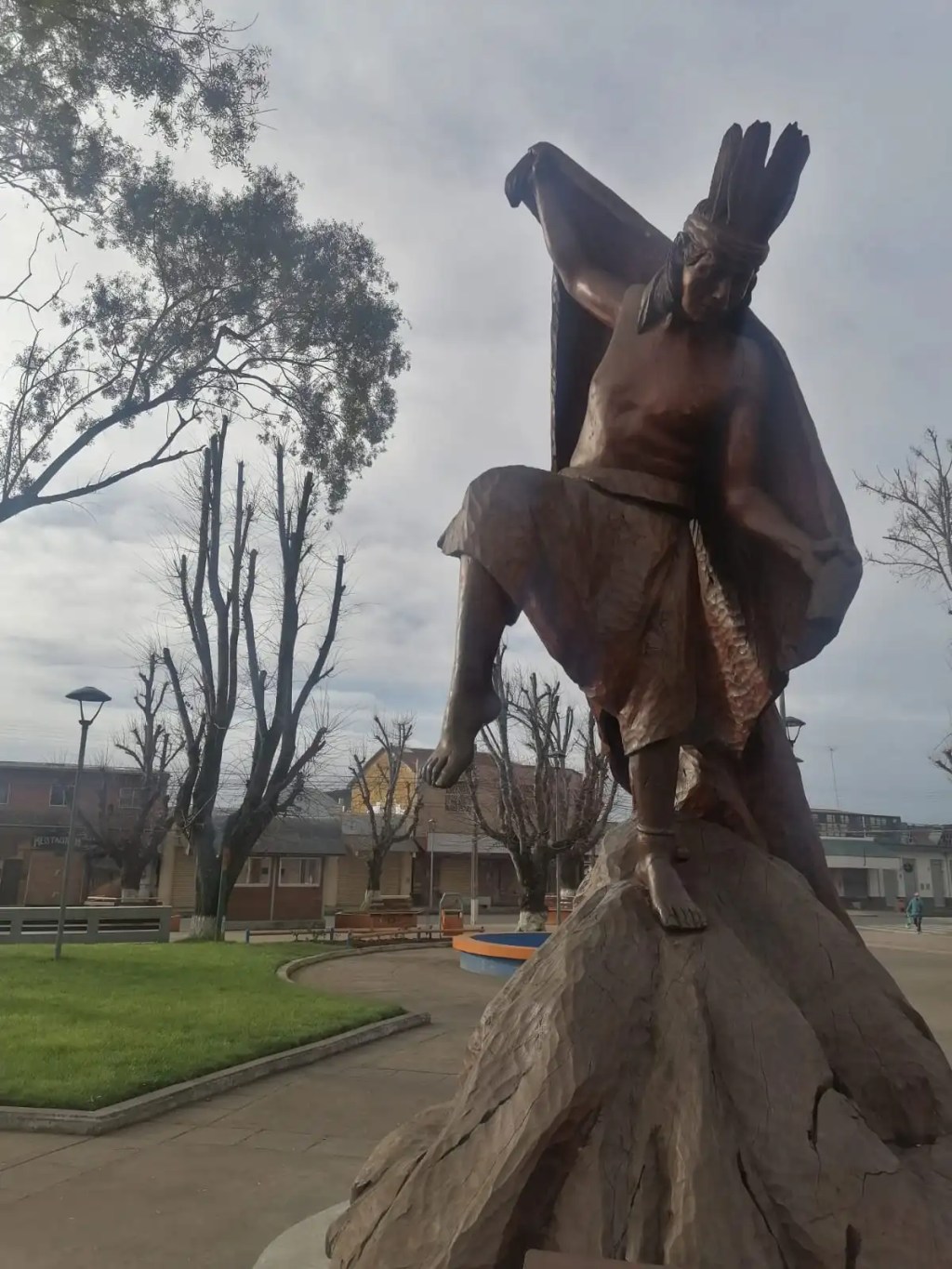Over the last years, the Wikimedia movement has been trying to identify meaningful representation gaps in content about indigenous peoples in the digital space. Among other factors, this lack of representation is due to the characteristically oral traditions of these communities, and the absence of public policies that could promote the development and preservation of native languages, along with certain other phenomena, like globalization. In 2010, UNESCO alerted about this situation, pointing out that, out of 6700 extant languages globally, around 40% are under risk of extinction.
Up until 2023, 11 indigenous peoples have been legally recognized in Chile, each of them possessing language, culture, and knowledge models of their own. Over 2 million people, representing 12.8% of the country’s population, identify as people of indigenous origin. The largest population among them are the Mapuche, counting over 1,9 million people who mainly inhabit southern Chile and southwest Argentina. However, according to data by UNESCO Santiago, only 10% of that population speak Mapudungun. Additionally, intergenerational transmission of the Mapudungun language is in decline.
Initial approaches, observations, and challenges: Wikipedia in Mapudungun is born
From its origins as a chapter, Wikimedia Chile wondered about the role that may be played by the free knowledge ecosystem in the preservation of the Mapuche language. Already in 2011, the group got involved in the creation of a Wikipedia in Mapudungun, a process that brought scholars and native mapuche college students together, in the interest of preserving language.
This collaboration allowed for the creation of over 500 entries, but the project couldn’t continue, and remains to this day in the Incubator. Why did this happen? Reasons are varied, and are a mix of both internal and contextual factors: lack of institutional experience, lack of resources exclusively destined to manage the project, infrastructure and connectivity issues in target communities, poor digital literacy, and even a historic and sociopolitical context that strained the links between certain factions of these peoples and the digital spaces and platforms seen as ‘foreign’.
Nevertheless, Wikimedia Chile identified other challenges at the global, even geopolitical level: ISO 639 guidelines, which establish codes to represent languages internationally, continue to denominate Mapudungun as ARN, alluding to “Araucano”, a word that was coined during the Spanish colonial rule to refer to the Mapuche, and is thus rejected by the same communities, due to its derogatory origin.
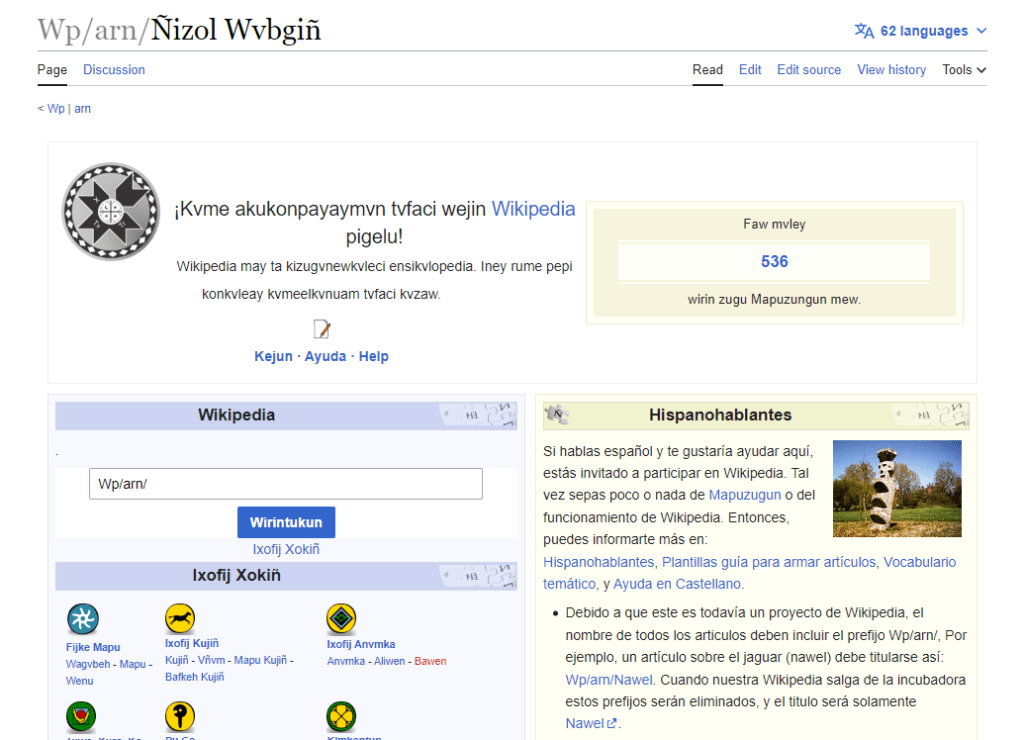
Project re-activation: Seeking new alliances to take the Wikimedia experience into Mapuche territory
Although some of the aforementioned contextual factors are still present, Wikimedia Chile has come a long way since those first steps into the world of the Mapuche. In the present day, the chapter has a dedicated management team for this type of project, and a stable link to Patricio Melillanca, a Mapuche journalist and communicator, who came to know about the chapter’s work through the campaign Wiki for Human Rights, in May 2023.
Patricio first knew about the Wikimedia projects in 2009, when he created the article about Wallmapu (Mapudungun word designating the territory that is inhabited by the Mapuche people) on Wikipedia in Spanish, under an anonymous IP. Since then, this article has been edited and improved over 500 times.
“In those years, I discovered that many key concepts in Mapudungun were missing on Wikipedia. One of them was the ‘Wallmapu’ concept, so I created an article about it, writing only a paragraph that reflected my understanding of what that word meant. After 15 years, I’m surprised that this same paragraph has been modified, enriched, strengthened, and expanded through a series of references and other resources”, recounts Melillanca.
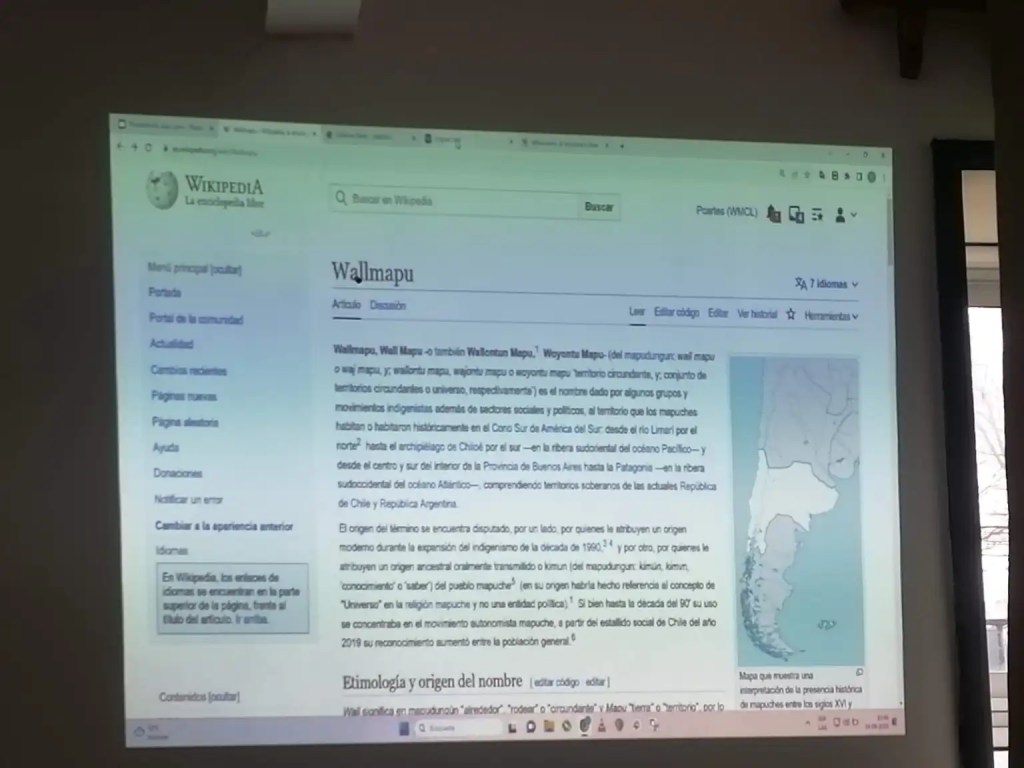
Currently, Patricio works alongside Wikimedia Chile to reactivate the integration of the Mapuche people to the field of Wikimedia projects. One of these initiatives took place last August, when the National Institute for the Mapuzuguletuaiñ Mapuche Language (Instituto Nacional de la Lengua Mapuche Mapuzuguletuaiñ) joined them in a visit to the Araucanía Region. Along with UNESCO, and the Chilean Ministry of Education’s Intercultural Bilingual Education Program (Programa Intercultural de Educación Bilingüe, PIEB), this Institute carries out linguistic immersion experiences, or koneltun, in diverse locations throughout southern Chile. This visit sought to create alliances to support these regions’ programs through Wikimedia projects.
“I believe that the autonomous Mapuche systems of education, such as language-oriented boarding schools, could use Wikimedia tools to support their work, especially in communities that have access to information and knowledge technologies (TICs). Wikimedia platforms could represent a strong link to Mapuche media, which spreads language as well”, ponders Patricio Melillanca, who has worked as a journalist in media companies such as Mapuexpress and Mapuche Diario, that are dedicated to covering national and international issues and events affecting Mapuche communities.
Next steps: Setting specific goals to promote the active participation of Mapuche communities in Wikimedia platforms
Other wikimedians’ experiences have been fundamental to reprise this project. Wikimedistas Wayuu, for instance, shared orientations, guides, and good practices related to their own experience creating the Wayuunaiki Wikipedia, a project that, after years of work and effort, has recently come to fruition.
Neima Paz, activist and member of Wikimedistas Wayuu, underscored the main goal of this group in all their years at work; “strengthening the Wayuu identity through free knowledge, safekeeping information and memory, and bringing knowledge to society, in our own communities”, besides “creating a collective conscience, so that native languages of Latin America may be strengthened through participative educational and identitary processes”. This line of work has been one of their main references for the reactivation and management of this project at Wikimedia Chile.
“To keep meeting with the Mapuche communities and establish dialogues is still a challenge for the Wikimedia movement. Only through dialogue can their true knowledge transmission needs be known, and even then, these needs may vary from community to community. Once this approach is set, ideas for collaboration and use of the Wikimedia platforms can be discussed”, points out Pablo Cartes, a local project manager and current leader of this project at Wikimedia Chile.
These learnings led them to structure collaboration around certain specific goals, such as:
- Contacting Mapudungun speakers in regions with little access to the Internet, to know their perspectives about the free knowledge movement and the role Wikimedia plays.
- Promoting initiatives that apply Wikimedia tools to document and revitalize the Mapuche language and culture, addressing the particular needs of each community.
- Creating spaces dedicated to training Mapudungun-speaking communities, to promote the creation of a Mapuche community of contributors on Wikimedia platforms like Lingua Libre or the Wiktionary.
- Performing research and evaluation of the means to request a change to the ISO 639 Code “ARN” for a more representative category, allowing the communities to conduct themselves and answer their questions.
“I believe that respect for all these processes is also part of the values that Wikimedia promotes. It’s fundamental to listen to the voices in these communities, and to provide ways for their knowledge to be seen, through tools that can satisfy their educational or informative needs. It is also important to be their allies in the construction of knowledge in digital spaces, so that this is done in a representative manner”, said Pablo Cartes.

Can you help us translate this article?
In order for this article to reach as many people as possible we would like your help. Can you translate this article to get the message out?
Start translation
